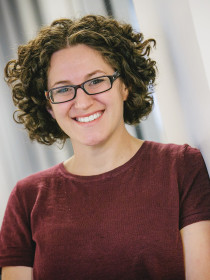
Michal Raucher
Connect with Michal
About Michal
Raucher's research focuses on how people make reproductive choices and how women see themselves as religious authorities. Overarching themes in Raucher's research include the anthropology of women in Judaism, reproductive ethics, and religious authority. Raucher serves as the co-editor of the Journal of Feminist Studies in Religion, is an organizer for the Seminar on Jewish Orthodoxies, and teaches regularly to public audiences about abortion and religion.
Contributions
In the News
Publications
Demonstrates the nuances of existing pronatalism in Jewish policy and practice, and highlights diverse reproductive practices and strategies among Jews in order to demonstrate that pronatalism is not the sum total of Jewish reproductive policy, advocacy, or praxis. Concludes by decentering pronatalism in the study of reproduction and attitudes toward reproduction. Sees that demographic continuity is just one of many considerations in Jewish reproductive practices.
Explores the ways Haredi Jewish women make decisions about their reproductive lives. Finds although they must contend with interference from doctors, rabbis, and the Israeli government, Haredi women find space for—and insist on—autonomy from them when they make decisions regarding the use of contraceptives, prenatal testing, fetal ultrasounds, and other reproductive practices. Shows that Haredi women assert that they are in the best position to make decisions about reproduction when drawing on their experiences of pregnancy, knowledge of cultural norms of reproduction, and theological beliefs.
Considers how to teach about abortion in the college classroom.
Discusses how Jews have often been referred to as ‘People of the book because books, specifically those that contain rabbinic legal discourse, are understood to be authoritative guides for Jewish life, and those who have achieved mastery in the content of the books are considered authorities. Offers a different framework, one which sees women’s religious authority growing out of embodied experiences.
Reflects on the thirtieth anniversary of the first publication of Beverly Wildung Harrison's Our Right to Choose. Examines how abortion legislation in Israel prohibits abortions for financial reasons. Reveals that various facets of Harrison's argument resonates with the Israeli-Jewish scene. Supports Harrison's main argument that we must investigate the economic and racial realities within the sexism ever present in antiabortion.